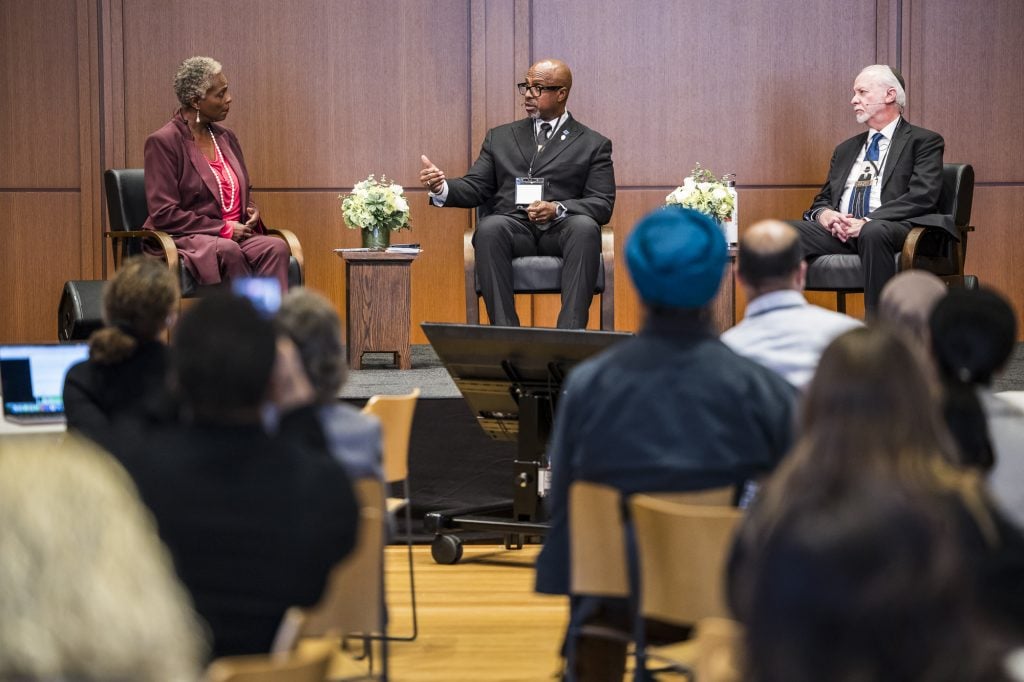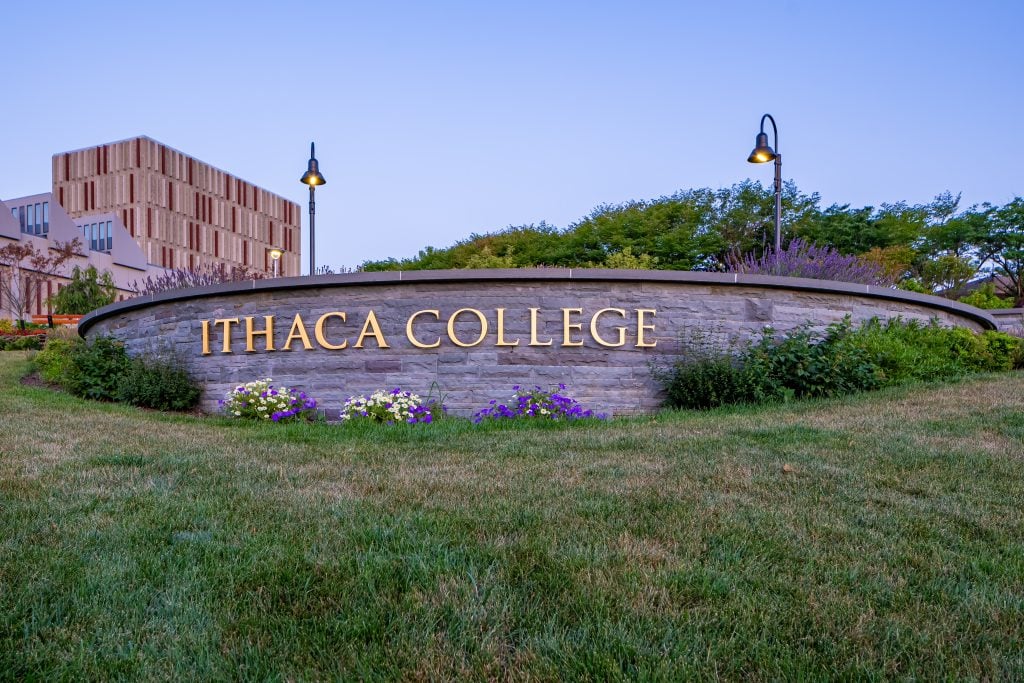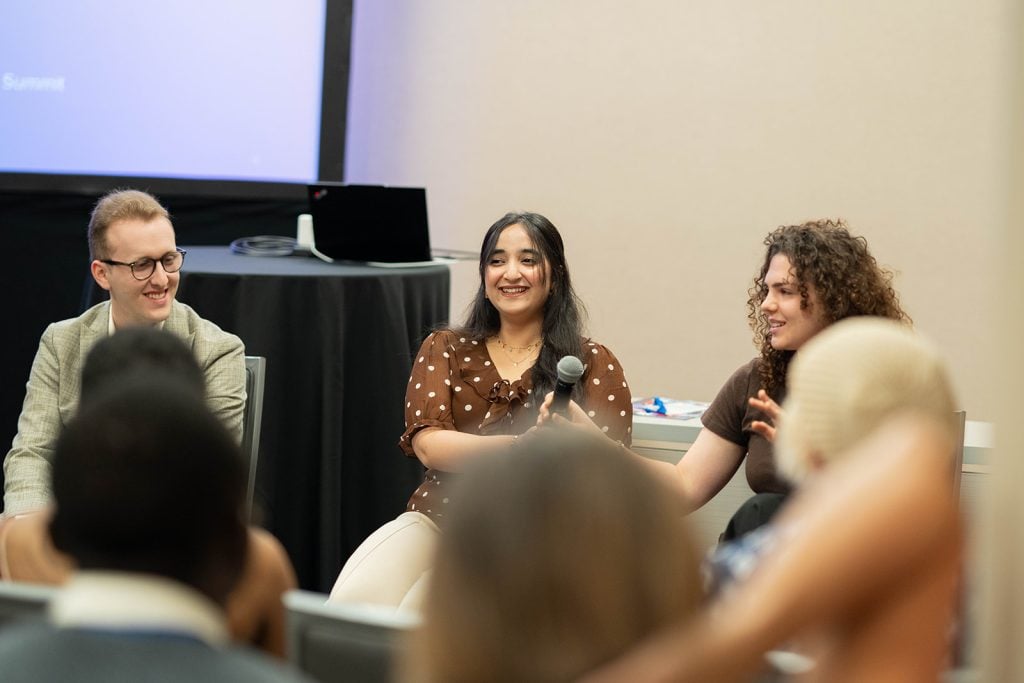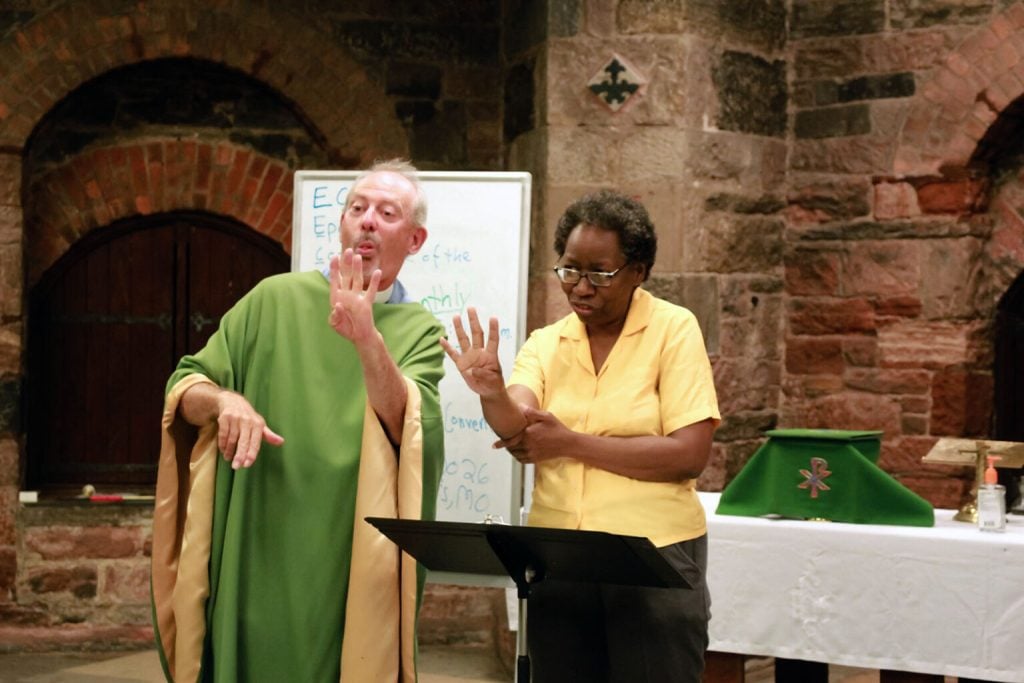Interfaith America’s is dedicated to leveraging the rich religious diversity of the United States to strengthen health outcomes for all. We amplify efforts at the intersection of faith and health that promote whole-person care, health equity, and health worker resilience. Along the way, we’re building robust partnerships with individuals and organizations committed to engaging religious diversity fruitfully in health settings.
Suzanne Watts Henderson, Senior Director of Faith & Health at Interfaith America (IA), and Michael Skaggs, co-founder of the Chaplaincy Innovation Lab (CIL), discuss the origin of our collaboration to offer a webinar series titled “Mending What is Broken.”
In conversation with Interfaith America Magazine, Suzanne and Michael share their insights and hopes for this initiative as we raise awareness around the vital promise of religious pluralism in healthcare.
Editor’s note: The following conversation has been edited for clarity and length.
Interfaith America: Tell us about the budding partnership between CIL and IA.
Suzanne Watts Henderson: The series’ premise highlights that our nation’s religious and spiritual diversity is a significant asset in delivering quality health care. I am particularly thrilled about our guest speakers, who include patients and providers, chaplains, and health system leaders. They also represent a wide range of faith traditions and worldviews.
Michael Skaggs: Indeed, Suzanne. The connection occurred through Wendy Cadge’s talk at the Chautauqua Institution convening last July. Over the past five years, the Lab has emerged as a leader in what we envision as the next phase of American religion. We started in 2018 by focusing on chaplaincy, realizing that chaplains are indicators of where religion is headed and play a crucial role in meeting spiritual needs as formal religious affiliations decline. We see the need for a more ubiquitous way of meeting spiritual needs, akin to how streaming services transformed media consumption. Interfaith America brings expertise in navigating religious diversity well, so this partnership has tremendous promise.
IA: What are your hopes for this webinar series?
SWH: Partly, it’s about raising broad public awareness about the promise at the intersection of faith and health. We’re also happy to help champion the role of chaplains as bridgebuilders in the continuum of care. Finally, we see real benefits for health workers, as research shows that those who engage more profound questions of meaning and purpose in their work are more satisfied and effective in their professional journeys.
MS: We want people to take something away that they can use immediately: a concrete next step. We also aim to reveal assumptions about faith and health that can detrimentally impact marginalized communities. Chaplains often advocate for patients with overlooked needs, promoting health equity and more equitable outcomes. Another overlooked group is healthcare providers, who usually suffer from moral injury and burnout. Chaplains are being educated on how to address this, benefiting everyone.
IA: Can you give concrete examples of how integrating/advocating for more chaplaincy work has benefited different institutions or organizations?
MS: One impactful project involved chaplains supporting medical interpreters during COVID-19. This support addressed their struggles with hearing and relayed distressing news. This support made a significant difference, showing the importance of acknowledging and helping overlooked communities.
IA: What are some practical, impactful ways people can apply lessons from the webinars in their workspace?
SWH: Participants from the webinar, especially chaplaincy-related folks, can take back the idea of introducing explicit interfaith competency and understanding around religious pluralism in their workplaces. Incorporating interfaith learning in existing trainings such as Grand Rounds, employee onboarding, and organizational offerings related to cultural competency can go a long way toward building a radar screen for religious diversity and equipping all health team members to appreciate the vital importance of bridging the faith-health divide.
WEbinar
Join us on October 15
Learn how spiritual caregiving can play a role in a more equitable American health landscape.





